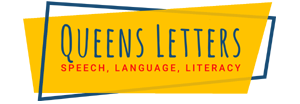EVERYTHING YOU NEED TO KNOW ABOUT FEEDING THERAPY FOR BABIES, TODDLERS, AND CHILDREN
Feeding therapy addresses difficulties or challenges related to eating, swallowing, and the overall relationship with food in infants, toddlers, children, and sometimes adults. It involves a comprehensive approach encompassing various aspects of feeding, including physical, sensory, behavioral, and psychological components.
Signs that a Baby, Toddler or Child Needs a Feeding Therapy
Mealtime is often an opportunity for bonding and exploring new flavors and textures. However, it can be challenging sailing for some children. Some children face stress and difficulties during mealtimes.
If the following behaviors impact a child’s capacity to eat safely, fulfill nutritional requirements, or savor the mealtime experience, seeking a feeding evaluation could benefit the child.
- Failure to Thrive: When a child is not gaining weight or growing at an expected rate due to feeding difficulties.
- Oral Motor Challenges: Difficulty with sucking, chewing, or swallowing, impacting feeding and nutrition.
- Picky Eating or Food Aversions: Extreme selectivity in food choices, leading to a limited diet or refusal to eat certain textures or types of food.
- Sensory Sensitivities: Strong reactions or aversions to certain tastes, textures, smells, or food temperatures.
- Swallowing Difficulties (Dysphagia): Choking, gagging, coughing, or frequent respiratory issues during eating or drinking.
- Delayed Milestones: Lack of age-appropriate feeding skills or developmental delays related to eating behaviors.
- Underlying Medical Conditions: Reflux, gastrointestinal issues, prematurity, neurological disorders, or genetic syndromes impacting feeding.
Early intervention is often encouraged, especially if concerns arise during infancy or childhood. Pediatricians, healthcare providers, or specialists can assess the child’s feeding difficulties and determine whether a referral to a feeding therapist, typically an occupational therapist or speech-language pathologist specializing in feeding, would be beneficial. We travel throughout Manhattan, Brooklyn, Queens, Staten Island, and the Bronx.
Causes of Feeding Disorder
Feeding disorders in children can stem from diverse factors, encompassing physical, psychological, sensory, and behavioral elements.
Oral motor challenges, like difficulties in chewing or swallowing due to conditions such as tongue-tie or neurological disorders, contribute to these issues. Sensory sensitivities, where tastes, textures, or smells of food trigger aversions, also impact eating habits.
Underlying medical conditions like reflux or developmental delays, including autism spectrum disorder, can hinder comfortable eating. Picky eating behaviors, influenced by negative experiences or learned behaviors, and psychological factors like anxiety or stress further complicate feeding.
Environmental influences, parental feeding practices, and mealtime dynamics also shape a child’s attitude toward food. Understanding these causes helps tailor interventions to assist children in improving their feeding skills and relationship with food.
Skills Taught in Feeding Therapy
Feeding therapy encompasses a range of skills tailored to address specific challenges in eating, swallowing, and overall food-related behaviors.
Some of the key skills taught in feeding therapy include:
- Oral Motor Skills: Exercises and activities with food and liquids to improve coordination, strength, and movement of the muscles involved in chewing, sucking, and swallowing.
- Sensory Integration: Gradual exposure to different food textures, tastes, temperatures, and smells to desensitize sensory aversions and expand the child’s tolerance for diverse foods.
- Swallowing Techniques: Techniques to improve swallowing safety and efficiency, addressing issues such as choking, gagging, or difficulty managing food or liquid safely.
- Food Acceptance and Exploration: Strategies to encourage the exploration of new foods, expand food preferences, and reduce resistance to trying unfamiliar textures or flavors.
- Mealtime Behavior and Routines: Establishing positive mealtime routines, reducing anxiety or stress related to eating, and promoting a relaxed environment during meals.
- Adaptive Feeding Strategies: Teaching adaptive techniques or using specialized utensils and feeding tools to facilitate eating for children with physical challenges.
- Parental Education and Support: Educating parents or caregivers on effective feeding techniques, creating supportive meal environments, and understanding their child’s feeding challenges.
- Behavioral Interventions: Implementing behavior modification techniques to address picky eating behaviors, reduce mealtime stress, and promote positive eating habits.
- Communication Skills: For children with developmental delays or communication disorders, teaching alternative methods of communication-related to eating needs.
- Independence in Feeding: Encouraging independence in self-feeding and developing age-appropriate feeding skills.
These skills are tailored to each child’s specific needs and challenges. Feeding therapists, often occupational therapists or speech-language pathologists, work closely with the child and their caregivers to develop and implement strategies that promote successful feeding experiences and healthy eating habits.
How Can Our NYC Feeding Therapy for Babies, Toddlers, and Children Help?
At Brooklyn Letters, our NYC feeding therapy for babies, toddlers, and children offers invaluable support by conducting thorough assessments to understand your child’s unique feeding challenges. We tailor personalized intervention plans that directly address these specific issues.
We enhance your child’s feeding skills using specialized techniques like oral motor exercises and sensory integration. Our behavioral strategies effectively tackle picky eating behaviors and establish positive mealtime routines.
Experience the difference our feeding therapy can make in your child’s life. Contact us at Brooklyn Letters today and embark on a journey towards a positive relationship with food for your child. We travel throughout Manhattan, Brooklyn, Queens, Staten Island, and the Bronx.







